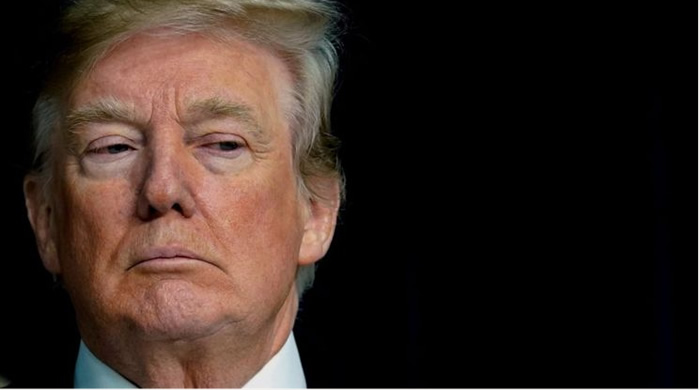
The Colorado Republican Party on Wednesday appealed that state’s supreme court decision that found former President Donald Trump is ineligible for the presidency, the potential first step to a showdown at the nation’s highest court over the meaning of a 155-year-old constitutional provision that bans from office those who “engaged in insurrection.”
The first impact of the appeal is to extend the stay of the 4-3 ruling from Colorado’s highest court, which put its decision on pause until January 4, the day before the state’s primary ballots are due at the printer, or until an appeal to the U.S. Supreme Court is finished. Trump himself has said he still plans to appeal the ruling to the nation’s highest court as well.
The U.S. Supreme Court has never ruled on Section 3 of the 14th Amendment, which was added after the Civil War to prevent former Confederates from returning to government. It says that anyone who swore an oath to “support” the constitution and then “engaged in insurrection” against it cannot hold government office.
The Colorado high court ruled that applies to Trump in the wake of his role in the January 6, 2021, attack on the U.S. Capitol, intended to stop the certification of President Joe Biden’s victory in the 2020 presidential election. It was the first time in history that the provision was used to block a presidential contender’s campaign.
“The Colorado Supreme Court has removed the leading Republican candidate from the primary and general ballots, fundamentally changing the course of American democracy,” the party’s attorneys wrote. The filing was posted on the website of a group run by Jay Sekulow, a former attorney for Trump representing the Colorado Republican Party who announced he was filing the appeal Wednesday. Colorado Republican Party chairman Dave Williams also said the appeal was filed Wednesday.
The attorneys added: “Unless the Colorado Supreme Court’s decision is overturned, any voter will have the power to sue to disqualify any political candidate, in Colorado or in any other jurisdiction that follows its lead. This will not only distort the 2024 presidential election but will also mire courts henceforth in political controversies over nebulous accusations of insurrection.”
The U.S. Supreme Court is expected to take the case, either after the Colorado GOP’s appeal or Trump’s own appeal. If Trump ends up off the ballot in Colorado, it would have minimal effect on his campaign because he doesn’t need the state, which he lost by 13 percentage points in 2020, to win the Electoral College in the presidential election. But it could open the door to courts or election officials striking him from the ballot in other must-win states.
Sean Grimsley, an attorney for the plaintiffs seeking to disqualify Trump in Colorado, said on a legal podcast last week that he hopes the nation’s highest court hurries once it accepts the case, as he expects it will. “We obviously are going to ask for an extremely accelerated timeline because of all the reasons I’ve stated, we have a primary coming up on Super Tuesday and we need to know the answer,” Grimsley said.
More than a dozen states, including Colorado, are scheduled to hold primaries March 5 — Super Tuesday.
To date, no other court has sided with those who have filed dozens of lawsuits to disqualify Trump under Section 3, nor has any election official been willing to remove him from the ballot unilaterally without a court order.
The Colorado case was considered the one with the greatest chance of success, however, because it was filed by a Washington, D.C.-based liberal group with ample legal resources. All seven of the Colorado high court justices were appointed by Democrats.
However, the unprecedented constitutional questions in the case haven’t split on neatly partisan lines. Several prominent conservative legal theorists are among the most vocal advocates of disqualifying Trump under Section 3. They argue the plain meaning of the constitutional language bars him from running again, just as clearly as if he didn’t meet the document’s minimum age of 35 for the presidency.
The half-dozen plaintiffs in the Colorado case are all Republican or unaffiliated voters.
Trump has been scathing about the cases, calling them “election interference.” He continued that Wednesday as he cheered a ruling earlier that day by the Michigan Supreme Court leaving him on the ballot, at least for the primary, in that state.
“The Colorado people have embarrassed our nation with what they did,” Trump said on Sean Hannity’s radio show.
Source: voanews.com























